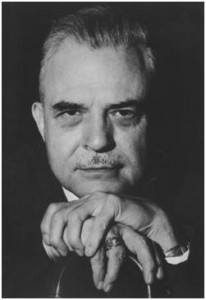For many people who are considering seeing a hypnotherapist in Exeter or anywhere else, hypnosis is a mysterious phenomenon.
They have no idea of how it works.
And many people fear things which they don’t understand.
Hypnosis may seem more mysterious due to the activity of stage hypnotists, who make it look as astonishing as possible in order to impress their audiences.

Don’t be deceived by stage and street hypnotists.
You can see these stage hypnotists not only in live performances in theatres, clubs, and private parties.
They are nowadays all over Youtube!
There are even “Street Hypnosis” practitioners who have themselves filmed hypnotising people on the street or in bars.
These people appear to be randomly selected.
But in reality the hypnotists will only show the people who were very responsive to them.
And they know how to recognise the most suggestible people.
Whereas stage and street hypnotists want as much publicity as possible, hypnotherapists cannot show their work on film as this would breach confidentiality.
Also the BBC has a long-standing policy since the 1950s of never showing actual hypnosis on television.
Many people will say, “oh yes, I’ve seen hypnosis on the Paul McKenna TV show.”
But actually the programme always showed a series of still images at that point in the performance.
So even if you’ve seen Paul McKenna a hundred times, that still won’t tell you how it works.
Hypnotherapists work with everyone.
Another difference is that a hypnotherapist has to work with the average member of the public.
They cannot afford to pick out only the extremely responsive people, as they are a small minority.
We could not make a living if we turned down 99% of potential clients!
But there’s an even more important difference between hypnotherapy and stage hypnotism.
The hypnotherapist is working only for their client’s benefit, to help the client to achieve their own goals.
Whereas the stage hypnotist mainly works to entertain the audience.
This can lead them into very unethical conduct.
For example, they may make suggestions of a sexual nature, which some people find amusing.
But of course they have no idea of what hang-ups the volunteer might already have.
They’ve never seen them before, and they’ll probably never see them again.
This is why Peter Casson, who was the greatest British stage hypnotist, campaigned for “ethical stage hypnotism.”
He set up an association to improve standards.
If you look at their code of conduct you will see that it forbids many stunts commonly performed by stage hypnotists, and with good reason!
In the menu below you’ll find articles about what is hypnosis, how hypnosis is used in therapy, how does it feel to be hypnotised, and how I use hypnosis.
 Skip to the content
Skip to the content
